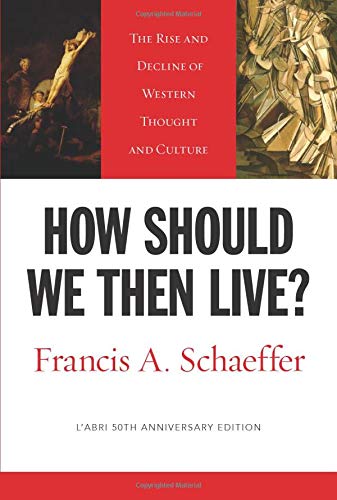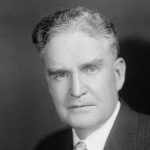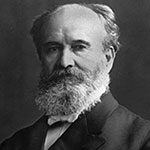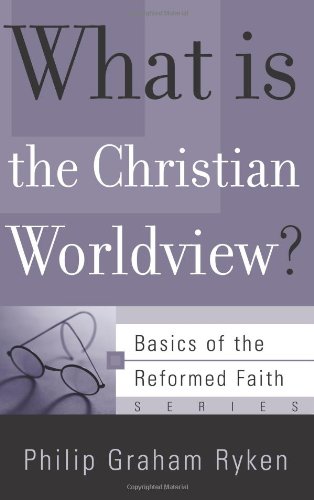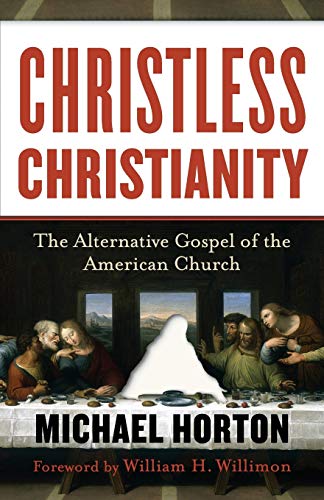Quotes about Church-Worldliness
The church at Ephesus faced a culture characterized by immorality. We, too, live in a culture tolerant of sexual immorality. It is popular to be open-minded to many types of sin, calling them personal choices or alternative lifestyles. But when the body of believers begins to tolerate sin in the church, it is lowering the church’s standards and compromising its witness. Remember that God’s approval is infinitely more important than the world’s. Use God’s Word, not what people around you are willing to accept, to set the standards for what is right or wrong.
Because I had been a basketball player, it never dawned on me to evaluate people on the basis of color. If you could play, you could play. In America it would appear that there is more openness, acceptance, and teamwork in the gym than in the church of Jesus Christ.
In this past century, Christians have all but ignored biblical teaching on the corporate nature of following Christ. Our churches anew awash in self-centered narcissism, hyper-individualism… Jesus never intended us to be Christians alone, and that our love for others who aren’t just like us is taken to be indicative of whether we truly love God.
Nine Marks of a Healthy Church, Crossway, 2000, p. 16, 17. Get this book!
But imagine this church: It is huge and is still numerically growing. People like it. The music is good. Whole extended families can be found within its membership. The people are welcoming. There are many exciting programs, and people are quickly enlisted into their support. And yet, the church, in trying to look like the world in order to win the world, has done a better job than it may have intended. It does not display the distinctively holy characteristics taught in the New Testament. Imagine such an apparently vigorous church being truly spiritually sick, with no remaining immune system to check and guard against wrong teaching or wrong living. Imagine Christians, knee-deep in recovery groups and sermons on brokenness and grace, being comforted in their sin but never confronted. Imagine those people, made in the image of God, being lost to sin because no one corrects them. Can you imagine such a church? Apart from the size, have I not described many of our American churches?
Nine Marks of a Healthy Church, Crossway, 2000, p. 172. Get this book!
Church discipline is a powerful tool in evangelism. People notice when our lives are different, especially when there’s a whole community of people whose lives are different- not people whose lives are perfect, but whose lives are marked by genuinely trying to love God and love one another. When churches are seen as conforming to the world, it makes our evangelistic task all the more difficult. As Nigel Lee of English InterVarsity once said, we become so like the unbelievers they have no questions they want to ask us. May we so live that people are made constructively curious.
Nine Marks of a Healthy Church, Crossway, 2000, p. 176. Get this book!
Most church members live so far below the standard; you’d have to backslide to be in fellowship. We are so subnormal that if we were to become normal, people would think we were abnormal.
It is common for those that are farthest from God, to boast themselves most of their being near to the Church.
Who can deny…that the evangelical enterprise has become worldly, that materialism grips the church, that pleasure-seeking dominates us, that evangelicals watch sensuality and violence like everyone else, that immodesty is de jure, that voyeurism and pornography and sexual laxity and divorce are on the rise, and that we, like Lot, could find that Sodom has been born anew in our own homes. God help us if while decrying sin, we are sprinting headlong after it. We must lay this to heart: A worldly church cannot and will not reach the world.
A church that seeks to look more and more like the world is in danger of presenting a God that is no longer holy because He is hardly discernible from the world.
The Sensitivity of True Worship, Christian Communicators Worldwide, www.CCWtoday.org. Used by Permission.
The world observes the behavior and life of the church. When the church acts no differently than the world, it loses its credibility and authenticity.
It is right for the Church to be in the world; it is wrong for the world to be in the Church. A boat in water is good; that is what boats are for. However, water inside the boat causes it to sink.
The glory of the gospel is that when the church is absolutely different from the world, she invariably attracts it.
Sadly, the influence has been in the wrong direction, as we see evidence that our culture has begun to permeate our churches. The church is seduced by the social agenda of wealth and pleasure, and has condoned sinful compromises. There is moral decay within the church, with highly publicized scandals involving ministers, and divorce statistics which are not much better than those outside the church. Think of all that we and our churches would have to repent of if a spirit of holiness began to captivate us. How can America be influenced by an inconsistent and hypocritical church?
There’s something desperately wrong when an unbeliever feels comfortable in the church. Heaven’s not coming down. The world’s coming in. The church ought to be so unlike the world.
Today, the greatest challenge facing American evangelicals is not persecution from the world, but seduction by the world.
The world has always shown hostility to the message of God – a truth which ought to give some concern to the contemporary church existing for the most part rather comfortably in a world of increasing wickedness.
Worldliness in the church is the number one enemy, and that comes in when we have unspiritual people, and we have unspiritual people too often because they are nominal Christians. They have the language, they have the outward, but they don’t have the power. So, Paul’s words: “The kingdom of God is not in word but in power.” That whole school of Edwards and Alexander and so on — they believed in the power of religion. You know, men candidating for the ministry, and the minister saying, “Can he pray down the Holy Spirit?” Imagine that question today. Can a man pray down the Holy Spirit? It’s not perhaps exactly the sentence we would say is completely correct, but you know what they meant… When those men prayed, the Holy Spirit did come down.
The greatest hindrances to the evangelization of the world are those within the church (John Mott).
I believe young people are indifferent to the church today, not because the church has required too much of them, but because it has demanded so little (Mort Crim).
The true man of God is heartsick, grieved at the worldliness of the Church…grieved at the toleration of sin in the Church, grieved at the prayerlessness in the Church. He is disturbed that the corporate prayer of the Church no longer pulls down the strongholds of the devil.
The church used to be a lightning bolt, now it’s a cruise ship. We are not marching to Zion – we are sailing there with ease. In the apostolic church it says they were all amazed – and now in our churches everybody wants to be amused. The church began in the upper room with a bunch of men agonizing, and it’s ending in the supper room with a bunch of people organizing. We mistake rattle for revival, and commotion for creation, and action for unction.
Tell me what the world is saying today, and I’ll tell you what the church will be saying in seven years.
The chief danger of the Church today is that it is trying to get on the same side as the world, instead of turning the world upside down. Our Master expects us to accomplish results, even if they bring opposition and conflict. Anything is better than compromise, apathy, and paralysis. God, give to us an intense cry for the old-time power of the Gospel and the Holy Ghost!
Did you ever notice how recent major theological shifts in the church (acceptance of evolution, fornication, so-called “gay marriage,” self-esteem, etc.), have not come as a result of Christians studying their Bibles. Rather, the shifts have come from the pressure of the world that has persuaded Christians to believe contrary to what is in their Bible.
Sermon, Christ’s Championship – Devil’s Defeat – Part 2, Revelation 12:1-17, January 17, 2015.
The doctrine of most “evangelical churches” today is the humanist theology…the exalted doctrine of man espoused by Erasmus, sharply defined by Arminius, made popular by the Wesleys, and given final polish by many religious psychologists of our time.
I believe that one reason why the church of God at this present moment has so little influence over the world is because the world has so much influence over the church… Put your finger on any prosperous page in the Church’s history, and [you] will find a little marginal note [that says]: “In this age [people] could readily see where the Church began and where the world ended.”
I believe that one reason why the church of God at this present moment has so little influence over the world is because the world has so much influence over the church.
Quoted by Curtis C. Thomas, Practical Wisdom for Pastors, Crossway Books, 2001, p. 131. Used by Permission.
We must face the fact that many today are notoriously careless in their living. This attitude finds its way into the church. We have liberty, we have money, we live in comparative luxury. As a result, discipline practically has disappeared. What would a violin solo sound like if the strings on the musician’s instrument were all hanging loose, not stretched tight, not “disciplined?
Many who say “Our Father” on Sunday spend the rest of the week acting like orphans.
The modern church is deteriorating in its need for pastors and is in dire need of evangelists.
As churchpeople, we sometimes assume that we are immune to the temptations of power. We don’t make much money. Society gives us so little power that we think ambition – the drive to succeed, achieve and have prestige and influence over others – is a problem only for people in business or politics, not for people like us. We thus sometimes fail to see how we get caught up, for the very noblest of reasons, in the same ambitions that motivate everybody. Eventually, the people climbing to the top of the body of Christ can look just like those scrambling to the top of General Motors. Often you can’t tell much difference between our leaders and those of the gentiles.
The standard of practical holy living has been so low among Christians that very often the person who tries to practice spiritual disciplines in everyday life is looked upon with disapproval by a large portion of the Church. And for the most part, the followers of Jesus Christ are satisfied with a life so conformed to the world, and so like it in almost every respect, that to a casual observer, there is no difference between the Christian and the pagan.
Recommended Books
